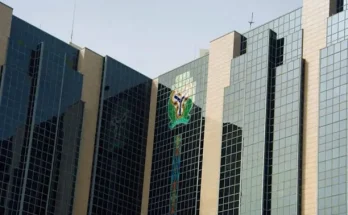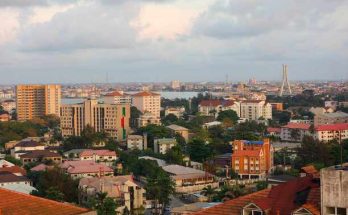By Sunkanmi Adewunmi
Edited by Ezennia Uche
In Lagos, the cry “No change o!” has become an anthem. Hop into any danfo (minibus) or wander through a market, and you’ll hear conductors and vendors warn riders: “Bring exact fare or you no go enter!” It’s a running Lagos joke — but behind the humor lies a real problem.
Take this true(ish) tale: a passenger pays ₦200 for a ₦150 fare and expects ₦50 back. After several reminders, the conductor snaps, “Go find your change!” By the time they reach the stop, the passenger storms off — still clutching part of the wooden bench as a souvenir. It’s funny until it happens to you.
As one Lagos blogger quipped: “If you enter bus in Lagos and don’t hear ‘no change ooo’, something’s wrong with you.” In other words, if you hand over a big bill, expect a small war.
Classic Lagos Excuses
So what exactly do drivers and shopkeepers say to avoid returning your ₦50 or ₦100?
“I no get change o!”
The instant go-to. As soon as you hand over a large note, the conductor warns: “Madam, na exact fare enter this bus o. I no dey carry small money.” Some traders even blame the banks: “Change finish for bank oh.”
“Abeg, come down and find am!”
A few conductors actually tell passengers to get off mid-route to look for change. One commuter recalled being told to “come down and find change” after paying with a ₦500 note for a ₦200 fare.
“Make we share naira!”
If two passengers overpay, the conductor might hand them one ₦100 note to split — imagine sharing half a bill each!
“Better use smaller bills next time.”
Often shouted as a pre-boarding warning: “Enter with your change o! I no go break your ₦1000!” Translation — if you bring big notes, you’re on your own.
Point-blank refusal.
Some conductors admit they have the change but simply won’t part with it. As one blogger joked, “They will have it, but they guard it like gold.”
A fictional conductor sums it up with a grin: “I go get change, but for una Lagos matter? Na wah oh!” A market woman adds with a laugh, “Today I get change, tomorrow I no get — call am national shortage!”
Beyond the Banter: The Small Note Crisis
Behind the laughter is a bigger story — one tied to inflation, currency scarcity, and daily survival. Across Nigeria, small denominations like ₦50, ₦100, and ₦200 have become rare. As far back as 2015, Daily Trust reported that traders and drivers nationwide were “lamenting the lack of small denominations.” The situation has only worsened.
A 2024 Premium Times report described how Lagos hawkers and bus drivers now scramble for ₦100 bills. A pepper seller lamented that every customer arrives searching for change. One driver in Ojodu-Berger admitted he sometimes buys snacks just to get smaller notes. Some keke (tricycle) operators even screen passengers for ₦100 bills before letting them board.
Why Is Change Disappearing?
Several factors keep this cycle alive:
Inflation and Fare Rounding:
With inflation over 30% in late 2024, prices jump constantly. Coins are obsolete, and ₦50 buys little. Many traders simply round up prices — a bunch of oranges that once cost ₦50 now sells for ₦100, no negotiation.
Currency Redesign and Cash Crunch:
The Central Bank’s 2022 redesign of ₦200, ₦500, and ₦1000 notes caused chaos. A Carnegie Endowment study found the policy triggered widespread cash shortages and even black-market trading of old notes. By early 2023, the Supreme Court had to order that old notes remain legal tender. In a cash-dependent economy, such disruptions hit hardest at street level.
In short, the demand for small bills far exceeds supply — and Lagos, ever the economic hub, feels it most.
Laughing (and Coping) Through It All
As always, Lagosians adapt with humor. Social media is full of #NoChangeNigeria memes:
“When the conductor says ‘I no get change,’ give him a standing ovation.”
Or: “Dear drivers, we love you — just bring small notes plz.”
People swap survival tips too: hoarding small notes, clipping ₦20s and ₦50s together, or over-withdrawing small bills when paying rent — just to avoid the next “no change” showdown.
Still, every kobo counts. As one commuter put it, “Tiny drops make a mighty ocean.” Economists agree: putting more small bills into circulation would ease grassroots transactions and reduce daily friction.
Until then, “No change o!” remains Lagos’ unofficial soundtrack — part joke, part warning, all too real.








